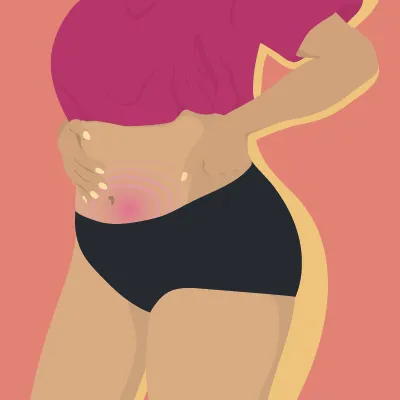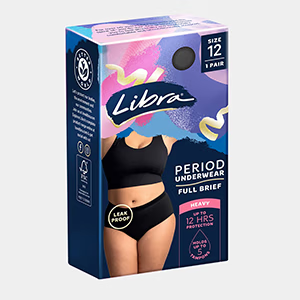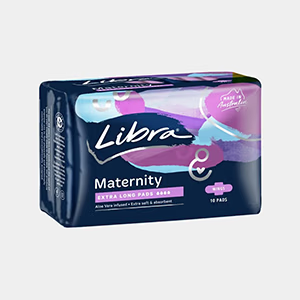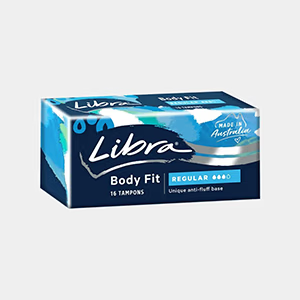Aug 09, 2021
Are period blood clots normal?
Your period. It’s 50 shades of red, it comes every month, it flows out a certain amount (sometimes heavy, sometimes regular), and sometimes it has…blood clots? Look, don’t stress girl – it is normal to experience period blood clots during that time of the month, for the most part. We’ve ALL experienced that “WTF is going on” moment when we’ve noticed clumpy blood on our pad or tampon. So, we’re here to put your mind at ease and tell you the ‘what’s what’ of period clots, and when it’s best to take a trip to your GP pronto.
Okay then, so what ARE period blood clots?
Menstrual blood clots are a mix of blood cells, tissue from the lining of the uterus, and proteins in the blood that help to regulate your flow. They look like a thick glob of blood, and in most cases, they’re a natural occurrence at that time of the month. You’re most likely to experience clots during your period when your flow is at its heaviest (generally during the first 2 days of menstruation when your flow is leaving your body quickly) and they’re likely seen as bright or really dark red – almost blackish! If you notice the blood clots are brown and they pop up towards the end of your period – this simply means that the blood is older, and leaving your body at a slower rate.
Right, so HOW and WHY do menstrual blood clots form?
To help break your period blood and tissue down, your body produces what’s called ‘anticoagulants’. Basically, this happens in order to help you pass the blood more easily. However, when the blood is moving faster than the anticoagulants can be produced, period blood clots form. This is because the menstrual blood pools, and from there it begins to ‘coagulate’; simply meaning that the fluid changes to more of a semi-solid consistency.
What can cause period clots?
Blood clots are actually just part of your body’s natural defence mechanism, and they form to help prevent too much blood from flowing out. *High five bod!* As a general rule, if you notice your period blood clots are smaller than a 10 cent coin and there isn’t a lot of them, it’s likely that they’re part of your body’s natural defence system kicking into gear! However, depending on your age and medical history, there could be other causes for big blood clots, including:
- Fibroids – common, non-cancerous growths inside your uterus that can cause blockages which may affect your flow.
- Hormonal imbalances – can cause your cycle to be irregular, which could result in heavy bleeding and clotting from the lining of your uterus not being shed regularly.
- An underlying health condition – like endometriosis or adenomyosis, a trip to your GP can give you more information and test for any potential conditions.
- A miscarriage or pregnancy loss – if you’ve noticed big period clots and heavy bleeding, this can be a sign of miscarriage. If you’re experiencing these symptoms, we recommend booking an appointment with your GP immediately.
- Bleeding disorders – may cause heavier-than-normal menstruation.
- Cancer in your uterus or cervix – rare, but still possible.
When should I be concerned/see a doctor?
Although menstrual blood clots are usually no biggie, it’s definitely important to keep an eye on them, girl! Head straight to your GP if the period clots are:
- Bigger than a 10 cent coin
- Happening frequently
- Part of an abnormally heavy flow, where you have to change your pad/tampon every 1 – 2 hours
- Causing a LOT of pain!
It’s SO important to take note of any out of the norm symptoms, so you can let your doc know. Rest assured, they will carry out a range of tests and physical exams to get to the bottom of why you’re experiencing certain symptoms, and decide the best course of action, treatment and management.
Love, Libra x
Anything else? Asaleo Care makes no warranties or representations regarding the completeness or accuracy of the information. This information should be used only as a guide and should not be relied upon as a substitute for professional, medical or other health professional advice.







